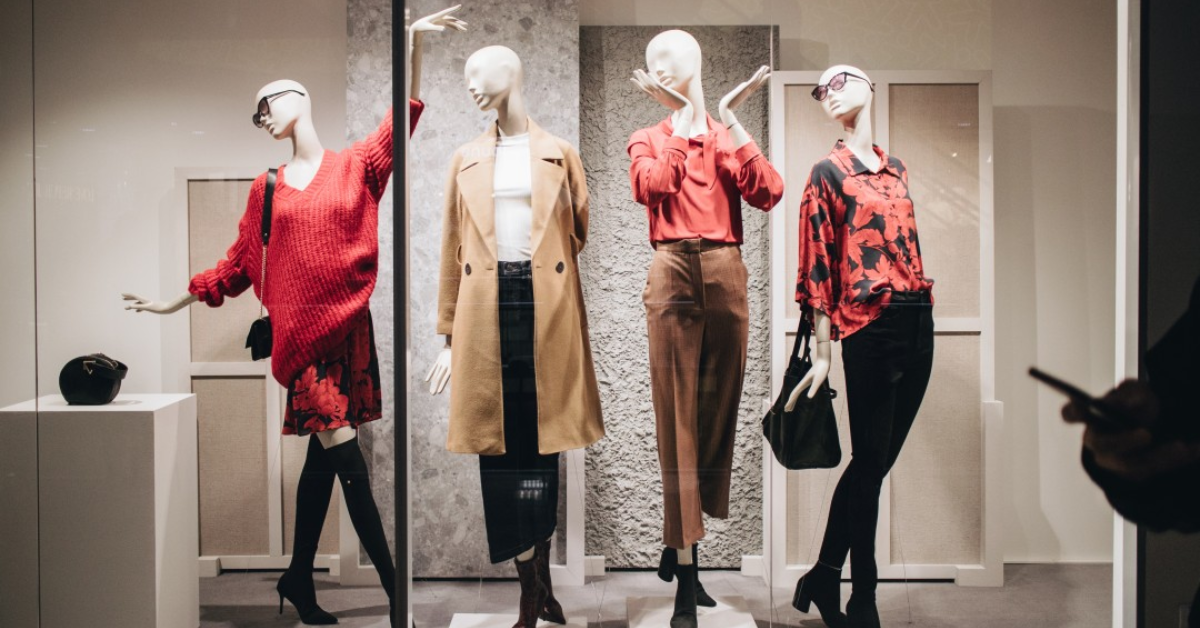Eco-Friendly Fashion: How Sustainability is Redefining Style
- 249 Views
- infosphereonline.com
- 25 September 2023
- Blog Fashion and Style
In recent years, the fashion industry has undergone a significant transformation, one that extends far beyond the latest trends and designer labels. The shift towards sustainability has taken center stage, reshaping the way we perceive and engage with fashion. From environmentally conscious materials to ethical production practices, eco-friendly fashion is revolutionizing the industry, redefining style, and setting a new standard for the future.
The Rise of Eco-Friendly Fashion
The fashion industry has long been criticized for its negative impact on the environment. From the excessive water usage in cotton cultivation to the pollution caused by textile dyeing, the traditional fashion supply chain has been far from green. However, in the past decade, a growing awareness of these issues has spurred a wave of change.
Eco-friendly fashion, also known as sustainable fashion, places a strong emphasis on reducing its environmental footprint. It embraces practices such as using organic and recycled materials, minimizing waste, and adopting energy-efficient production processes. This shift towards eco-consciousness has not only made fashion more responsible but also more stylish.
Materials Matter
One of the cornerstones of sustainable fashion is the use of eco-friendly materials. Conventional cotton, for example, is known for its heavy pesticide use and high water consumption. In contrast, organic cotton is grown without harmful chemicals and typically uses less water. Designers and brands are increasingly incorporating organic cotton into their collections, proving that you can have both comfort and conscience in your clothing.
Another exciting trend is the use of recycled materials. From plastic bottles turned into activewear to discarded denim transformed into stylish jeans, fashion is finding creative ways to reduce waste and give materials a second life. Recycling not only conserves resources but also adds a unique touch to fashion items, making them stand out in a sea of mass-produced garments.
Ethical Production Practices
Sustainability in fashion goes beyond materials; it extends to the people who make the clothes. Ethical production practices ensure that workers are paid fair wages, work in safe conditions, and are treated with respect and dignity. Brands that prioritize ethics are not only making a statement against exploitation but are also creating a positive impact on the lives of countless workers worldwide.
One significant movement within ethical fashion is slow fashion. This concept encourages consumers to buy less but invest in higher-quality items that are built to last. Slow fashion contrasts with the fast fashion model, which churns out cheap, disposable clothing that often ends up in landfills after a few wears. By opting for timeless pieces and supporting brands committed to ethical production, you can align your style with your values.
Innovations in Design

Sustainability has also pushed designers to think outside the box. Many have embraced the challenge of creating stylish, eco-friendly fashion by experimenting with innovative designs and cutting-edge technology. For instance, some designers have started using 3D printing to create intricate garments with minimal waste. Others have incorporated solar panels into clothing, allowing wearers to charge their devices on the go.
Additionally, fashion rental services have gained popularity, allowing people to enjoy the latest trends without committing to a permanent purchase. Renting reduces the need for excessive consumption and lowers the environmental impact of the fashion industry.
The Consumer’s Role
As consumers, we play a pivotal role in the fashion industry’s sustainable evolution. By making conscious choices, we can drive demand for eco-friendly fashion and push brands to adopt more sustainable practices. Here are some ways you can embrace eco-friendly fashion:
Educate Yourself: Learn about sustainable fashion and the brands that prioritize it. Research materials, certifications, and ethical practices.
Choose Quality Over Quantity: Invest in well-made, timeless pieces that will last longer and reduce the need for frequent replacements.
Support Sustainable Brands: Give your business to brands that are committed to eco-friendly practices and ethical production.
Secondhand and Vintage Shopping: Explore thrift stores and vintage boutiques for unique, pre-loved fashion items that extend the life of clothing.
Reduce, Reuse, Recycle: Donate or recycle clothing you no longer wear. This keeps textiles out of landfills and contributes to a circular fashion economy.
Conclusion
Eco-friendly fashion is not just a trend; it’s a fundamental shift in the way we perceive and engage with style. By prioritizing sustainability, the fashion industry is not only reducing its environmental impact but also pushing the boundaries of creativity and design. As consumers, our choices can accelerate this positive change, ultimately redefining fashion and making it a force for good in the world. So, the next time you refresh your wardrobe, consider making a sustainable choice and become a part of the fashion revolution that is shaping a brighter, greener future.
Recent Posts
- Your Ultimate Guide to Health and Fitness: Achieving a Balanced Lifestyle
- The Rise of Samay Raina: A Comedian Redefining Indian Comedy
- Get Creative: Your Ultimate Guide to DIY and Crafts for Everyone
- Delicious Adventures: Your Ultimate Guide to Food and Recipes
- Best Places for Solo Travel in India: A Budget Traveler’s Guide

